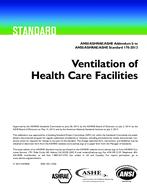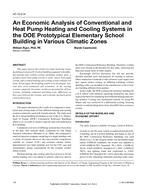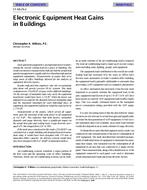Kitchen exhaust ventilation systems are recognized as a major energy user within commercial food service facilities and restaurants. Minimizing the design ventilation rate of an appliance/hood system by optimizing hood performance in the laboratory is a viable strategy for reducing the makeup air heating and cooling loads as well as the exhaust and supply fan energy. Cutting back the exhaust flow under conditions of noncooking (appliance idle) can further reduce the energy load associated with a kitchen ventilation system. An optimized, two-speed exhaust system was installed within the scope of an energy-efficient, quick service restaurant (QSR) design and demonstration project. This paper evaluates the energy benefit of this variable-flow strategy as well as the savings associated with reducing the design ventilation rate (compared to an off-the-shelf exhaust hood). The paper describes a new public-domain software tool for estimating heating and cooling loads associated with the makeup air requirements of commercial kitchens. This bin-based software provides ASHRAE engineers with an alternative to hand calculations or more sophisticated hour-by-hour simulation. The dramatic impact that both makeup air set point and geographic location have on the outdoor air load is illustrated. The paper concludes with an industry-wide projection of energy savings associated with optimizing the design and operation of commercial kitchen ventilation (CKV) systems.
Units: Dual
Citation: Symposium, ASHRAE Transactions, vol. 105, pt. 1
Product Details
- Published:
- 1999
- Number of Pages:
- 15
- File Size:
- 1 file , 2.5 MB
- Product Code(s):
- D-7629


